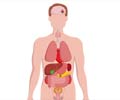A gene called upstream transcription factor 1 (USF1) could be implicated in increasing the risk for cardiovascular disease, Finnish scientists have revealed.
This is the same gene that was first identified in Finnish families ascertained for familial combined hyperlipidemia, a common dyslipidemia predisposing to coronary heart disease.Kati Kristiansson, a member of the research group of Professor Leena Peltonen at the University of Helsinki, investigated variation within the gene locus in relation to risk factors for atherosclerosis and incidence and prevalence of cardiovascular disease.
"We examined association between USF1 variants and several CVD risk factors, such as lipid phenotypes, body composition measures, and metabolic syndrome, in two prospective population cohorts, and our data suggested that USF1 contributes to these CVD risk factors at the population level", Kristiansson says.
The associations with quantitative measurements were mostly detected among study subjects with cardiovascular disease or metabolic syndrome, suggesting complex interactions between USF1 effects and the pathophysiological state of an individual.
Kristansson also used two study samples of middle-aged men with detailed measurements of atherosclerosis obtained in autopsy, with a view to determining whether carrying this gene variant has a direct impact on the atherosclerotic lesions of the coronary arteries and abdominal aorta.
It turned out that USF1 variation significantly associated with the size of the areas of several types of arterial wall lesions, especially with calcification of the arteries.
Advertisement
She further noted that the USF1 risk variants were associated with incidence of cardiovascular disease in Finnish population follow-up cohorts. The associations were especially prominent among women, suggesting a sex specific effect, she added.
Advertisement
Source-ANI
RAS/L











